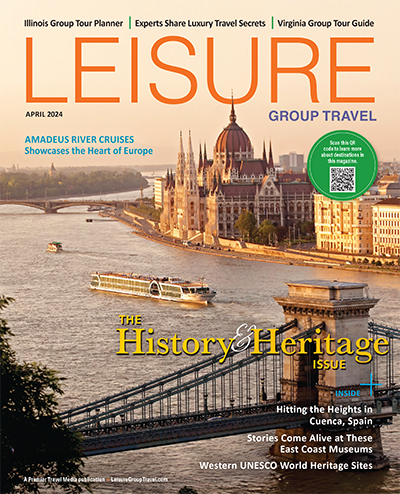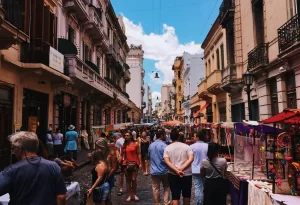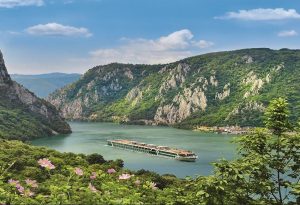It is obvious that the landscape for group travel, especially tours, has changed dramatically since the pandemic hit. As resilient as the travel industry has been through multiple events over the last 100 years, COVID-19 was the ultimate game-changer. Tour companies, hotels, coach companies, river cruise operators, DMOs and attractions had to re-think how they contract, market and operate to succeed in a very dynamic and unpredictable environment.
The Legacy of Escorted Touring Upended
The goal of tour companies was to design tour offerings that showcased those “must-see” destinations and experiences, featured multiple departure dates, then filled the motorcoaches or other modes of transportation. These multiple departures and volume replication of purchasing (hotels, restaurants, attractions, etc.) generated profits for the operator and economy for the customer. The tour would be less costly than replicating the same experiences on their own by booking individually. Add the benefit of reduced “hassle and planning” stress from the customer, and escorted tours left them free to enjoy their vacation experience. With the added benefit of a professional tour manager to add another level of expertise and narration that enhances the safety, consistency, educational value, and overall experience on the destination, one can clearly see the value of tours.
As competition intensified, tour offerings became more varied and a major, new benefit of group touring was unveiled. Personalized travel experiences surrounding food, wine, art, history, gardening and sharing them with people of similar background and interests helped the industry evolve greatly to not just seeing, but doing.
Participation and experience became the deciding factor of what separates a good tour from a great tour; with behind-the-scenes visits, private events and exclusive performances all greatly enhancing the experience for travelers. Just as important and impactful were the friendships made with fellow travelers. Traveling with others is enjoyable, meaningful and often people stay in touch and travel together in the future. This is one of the ways that operators grow and generate an “annuity.”
Radical Changes in Contracting and Operating Underway
The global pandemic has severely impacted traditional touring value propositions. Collective group buying and negotiations have been changed as volumes are down, groups are much smaller and traveling in larger groups is temporarily on hold. Regional restrictions and irregularities in attraction, restaurant, and hotel openings have made tour planning much more challenging. From an operational standpoint, the urgency is now around safety and cleanliness protocols to prevent the potential spread or transmission of Covid-19. From a sales and marketing perspective, those aforementioned key tour selling propositions have been sidelined due to social distancing requirements and the overall avoidance of large group gatherings.
Is This the New Normal?
The circumstances facing the industry can certainly look dire for group travel. But there are signs that the tide is turning, and changing for the better. In fact, Globus, Collette and several other operators have recently moved groups, with travelers enthusiastically reporting that they loved the experience, and the implementation of safety and cleanliness protocols made travelers feel very comfortable. Recent tour destinations were natural wonder-focused, with visits to national parks and the great outdoors. This most certainly will lead the way until a widespread vaccine is implemented.
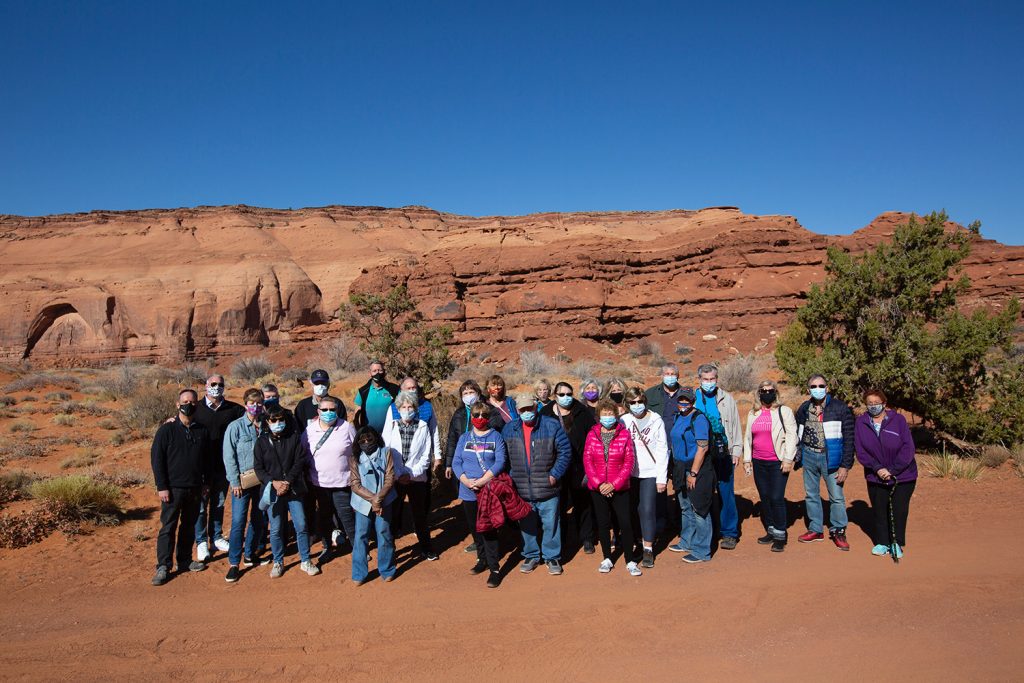
Photo Courtesy of Globus
Forging ahead and taking action
So, how can operators, vendors, and DMOs adapt and prosper in the midst of this radically changing environment? There is no single answer, but various signs point to a modest recovery for 2021 and a substantial upswing in 2022. In the interim, to survive, the group travel industry needs people traveling soon.
While the old dynamic of group travel is on hold for the time being, family and friend groups, albeit smaller in size, are continuing on with travel plans. This is where the opportunity lies.
People, homebound for the most part and isolated from their network, have created a “bubble-type” effect. People are getting out and traveling, but do so only with those they know personally. Nothing has really changed for these people, as this is how they have always wanted to travel (groups within groups) but now out of need, want to restrict it to just their inner circle.
This transition has the potential to create a much larger category in the industry of these small friends/family groups and will combine with the traditional group market when that rebounds. If one is an optimist, it could indicate that the overall touring markets will be even larger at some point because the category will be expanded as people may move away from large resort or cruise ship travel, in favor of these smaller, customized experiences. Over time, the traditional tour market will rebound, thereby effectively expanding the overall market with this hybrid version being a newly created segment.
Re-thinking the traditional contracting and operating models
The question the industry is facing is how to best target, contract, operate and grow this “travelling tribes” market. Fortunately, tour operators were facing demand for this segment long before Covid-19. These groups wanted exclusivity, unique features, flexibility, and didn’t want to be lumped in with “strangers.” Plus, they wanted this at close to the same price of the traditional group tour. The operator’s typical response was that it was just unrealistic, as these changes affect both profitability and affordability. Additionally, this model presents numerous operational challenges for operators and travel agents.
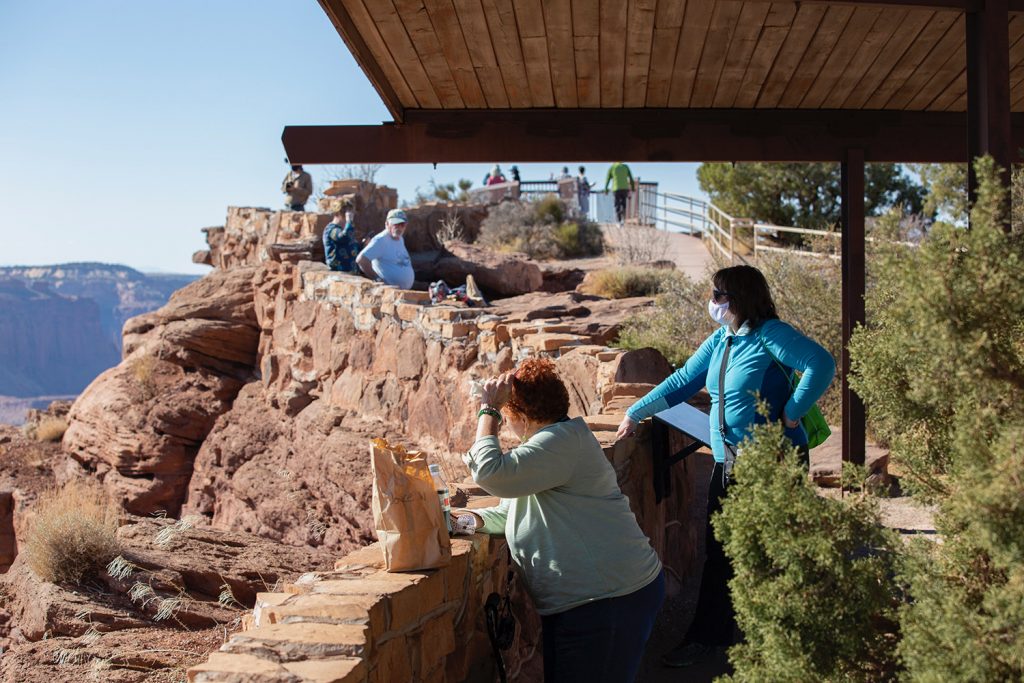
Photo Courtesy of Globus
Some operators have been providing independent programs that contain customizable modules, or additions that a client can add in that can “a la carte” their trip. But these do not address several of the main benefits that group touring can provide. And, of course, this leans more toward independent travel, thereby eliminating the group interaction dynamic that was always a hallmark of escorted group travel.
The group tour industry is facing a significant transition that will most certainly challenge the conventional structure of tour planning and operating. The key benefits of those personal, on-trip, group interactions will be temporarily put on hold by social distancing and restricting congregation of large groups. This will force the industry to quickly adopt a hybrid approach until the pandemic is under control and things begin to return to some level of normalcy. But because (for now) the social aspect of it has changed, that does not mean people don’t want to interact and travel with those people close to them whom they know and trust. In fact, it is probably more important than ever.
Entering this hybrid space
There are a multitude of things that have to happen to remake this landscape, and it will require strong business relationships, lines of communication and partner collaboration to succeed. Planning, contracting and operating will need a set of different tactics that will hinge on the ability of partners to be flexible in accommodating for this transition.
Tour planning is obviously a very fluid, dynamic process. Start by getting in contact with your group leaders and valued travelers and do some quick, easy surveys. Find out where they would go, for how long, and with how many people. Trends so far of groups that have gone out successfully indicate slightly shorter trips, outdoor- or national park-focused, and smaller group sizes. Also, there is a trend to focus on shoulder seasons, which is great from a contracting point of view.
For example, Globus ran an October Canadian Rockies trip, and two early November Southwest National Parks/Canyonlands trips. They also sent along select company executives on these first departures to demonstrate confidence in their operating protocols. This added a level of exclusivity and bragging rights, and this can be done by any operator to make a statement that they are “back in business” and fully confident in the safety, quality and delivery of their tour product. Once these trips return, social media sharing, blogs, videos, etc. can be used to restore confidence and enthusiasm in group travel, not to mention the significant PR exposure these companies will get. Operators should minimize complex trips, excessive flights, and large, indoor congregations which will improve odds of success.
Contracting will require a massive industry adjustment to get people back travelling. If airlines can do it by modifying seating capacity, refundability rules, change fees, etc, then the rest of the industry can also adapt their models. The traditional style of large volume/large groups/multiple departures will need to be modified. Hotels, attractions and other vendors should be offering their most aggressive rates, even for small groups.
Hotels, for example need to ask themselves if they would they rather book rooms in blocks of five for a small-group or one room that requires a similar marketing effort and is usually booked very last minute. Smaller groups may also open up attractions, restaurants and venues that may not have been able to host large groups. This can make the experiences more exclusive and personalized. It goes without saying that these smaller groups may never be as inexpensive and value-packed as larger groups. However, exclusivity has a price, and most are willing to pay for it.
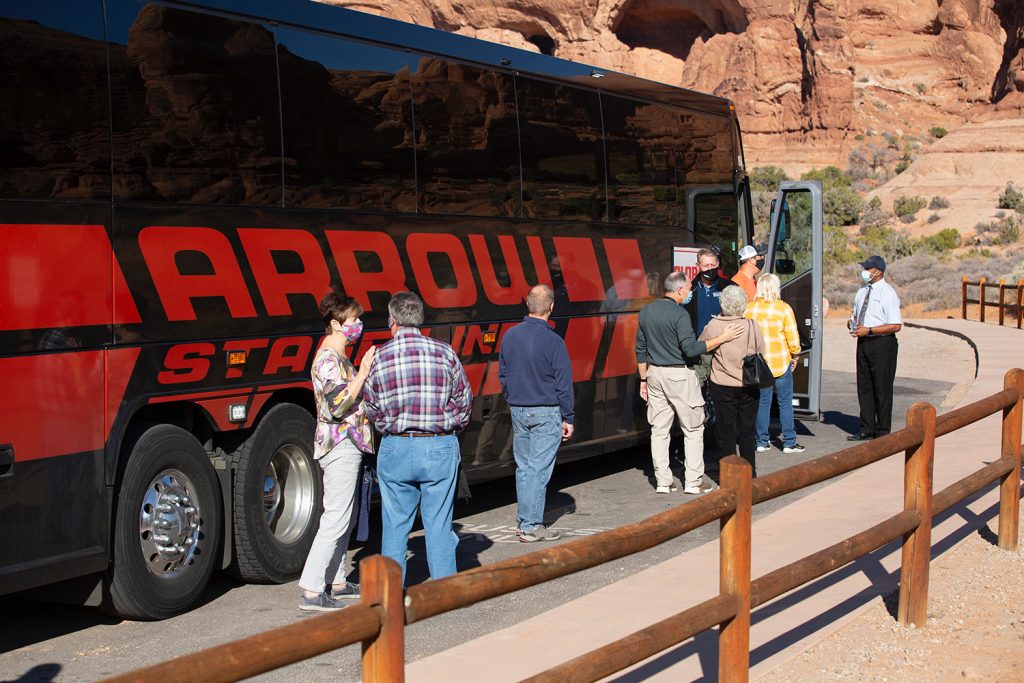
Photo Courtesy of Globus
Looking to tour managers and motorcoaches, it may prove difficult to allocate these fixed costs over relatively few people, so adjustments can be made like using sprinter vans or large SUV’s. Instead of a licensed tour manager, can a driver/guide be utilized, or can tour managers be “step on” in particular areas of interest or attraction? A strong tour manager is one of the best features of escorted travel and a true differentiator vs. independent travel. But modifications can be made, and this market is ripe with many tour managers looking to get back to work.
Operating tours also requires a great deal of flexibility. With a focus on cleanliness, social distancing, screening and mask usage, it is critical that guests understand the importance of these initiatives to generate confidence in the tour delivery. Ideally, since these are mutually shared interests for all, doing so should be designed to not interfere with the quality of the tour operation.
It is safe to say that every coach company, hotel, restaurant and attraction is keenly focused on this. Of course, any vendor that is not up to speed should be replaced, but it seems unlikely that any vendor accustomed to tour groups would not be completely onboard with this. Routing changes, cancelled flights, weather challenges, illnesses, injuries, etc, are but a few of the challenges that tour operations face in everyday life, so it should not be difficult to adjust to this new hybrid environment, with smaller groups, and an extreme focus on cleanliness and minimizing risk of COVID-19 transmission and exposure.
Disruption Creates Opportunity
If you look at the travel industry over the last 100 years, you will see many “disruptors” that altered the course and direction of travel. In the 1920s and 1930s, the creation of the package tour product added value and affordability, eventually enabling millions of people to see the world. In the late 1950s, the onset of the jet age shrunk the planet, and made it easier, cheaper, and more efficient for people to tour internationally. In the early 1980’s, the explosion of purpose-built cruise ships, and tremendous growth of the cruise lines created an entire new category of travel that has grown into one of the largest travel segments out there. In the 2000s, improvements in design of river cruise vessels, and elevation of the quality standards, has brought river cruising to the forefront of luxury travel around the world. In the 2010’s, AirBnb’s widespread appeal has changed forever the way people travel, while impacting traditional hotel markets.
COVID-19 has effectively hit the “re-set” button on the entire travel industry, and no one really knows how it will shake out. Which segments will survive and prosper, which will be created and emerge through new opportunity and which will not survive?
For group travel, it is a great opportunity for the industry as a whole to look at itself and challenge conventional and historical wisdom. To use this disrupting event to move away from operating and contracting solely on a volume basis, and take advantage of the opportunity to focus on quality, exclusivity, experience, and safety. This event will also illustrate the true value of business relationships the touring business has forged between operators and vendors. Hopefully all are onboard, joining together to mitigate risk building a new future for the touring industry.
For many years, group leaders have been asking for trips to be smaller, more customized and more exclusive. Now is the chance to create this new model.

Mike Schields
Mike Schields, a 30 year veteran of the travel industry, has held management and executive roles in both the cruise and tour industry, with companies such as Celebrity Cruises, Globus Family of Brands, Avalon Waterways, Brightspark Student Travel, Destination America, and Legacy Travel Group.



